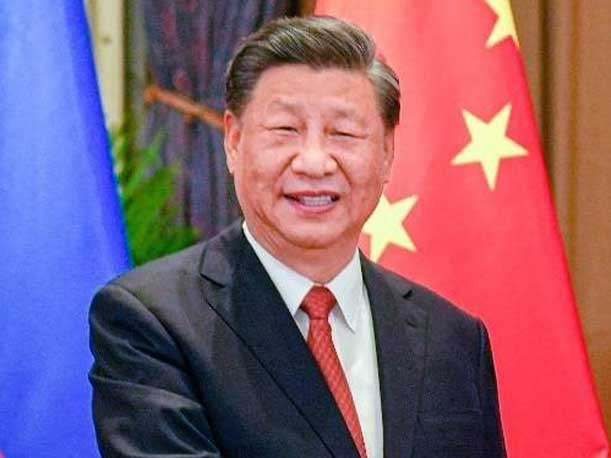Broadcom-VMware Deal Hinges On Whether Chinese President Xi Is Happy With APEC Summit: Analysts
‘If Xi walks away from APEC and lands in Beijing and gets hit with another headline about Entities List, the deal is dead,’ one analyst told CRN.

President Xi Jinping
Broadcom’s $61 billion acquisition of VMware now hinges on whether Chinese President Xi Jinping is happy with the results of his high stakes meeting this week with President Biden and U.S. business leaders at the Asia-Pacific Economic Cooperation (APEC) summit this week in San Francisco, analysts told CRN.
Xi must walk away from his discussions with Washington sure that the United States will not add more Chinese companies to restricted trade lists, which block U.S. companies from supplying parts, said one Wall Street analyst, who did not want to be identified.
“If Xi walks away from APEC and lands in Beijing and gets hit with another headline about Entities List, the deal is dead,” said the analyst. “It’s not the width or the depth of the deal that’s holding it up. It’s politics.”
In October, the U.S. Commerce Department added 42 more companies to the “U.S. Entity List,” an action that China called “economic coercion and unilateral bullying.”
[RELATED: In Broadcom-VMware Deal, All Eyes On APEC 2023 And Chinese President’s San Francisco Stop]
China’s competition authority is the final regulatory hurdle that Broadcom must clear before it can complete the acquisition of the virtualization all-star. It has 11 days left to meet the November 26 deadline when when either Broadcom or VMware could walk away,
Broadcom CEO Hock Tan, meanwhile, who is anxiously waiting for Chinese approval of the deal, was among those who attended a dinner with President Xi on Wednesday night.
Forrester principal analyst Tracy Woo said with nearly one-third of Broadcom’s business located in China, Tan needed to seek approval to buy VMware from Chinese trade regulators.
“Broadcom absolutely needed to get approval from China,” Woo said. “Thirty percent of its business is in China. If they went ahead without its approval they put a huge portion of their revenue at risk.”
Broadcom and VMware were given the greenlight in the EU, the Competition and Markets Authority in the U.K., and the U.S. Federal Trade Commission allowed the deal to pass the statutory waiting period. South Korea also gave its blessing. The EU, U.K. and U.S. each did separate deep-dive investigations into how the merger could harm trade and still did not stand in the way.
Broadcom has not returned CRN’s request for comment.
However, if the deal does not close by that Nov. 26 outside date, it is not clear what is next for the virtualization company.
VMware told CRN Tuesday it was focused on remaining an independent company until the merger closes, which it expects to happen soon.
It did not answer a question about what would happen if the deal does not go through.
“The Broadcom acquisition has cast a huge shadow on its future right now,” Forrester’s Woo said. “VMware can absolutely go it alone, though it needs to find a way to continue on building its value prop as the abstraction layer for hybrid cloud.”
Despite uncertainty around the deal, Broadcom stock hit a record high yesterday, closing at $975.40. The company’s stock has climbed $391.12, or 67 percent, since shares closed at $583.28 the day after the deal was unveiled.
VMware shares closed at $149.21 Wednesday, higher than the $142.50 premium that Broadcom is offering for the deal, but off its $178.88 high set Oct. 16, two weeks before the deal was supposed to close. VMware shares are up 15.43 percent, or $19.95, since the day after the deal was announced in May 2022.